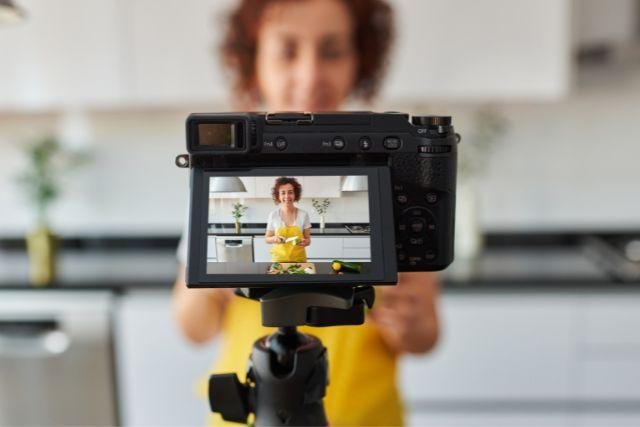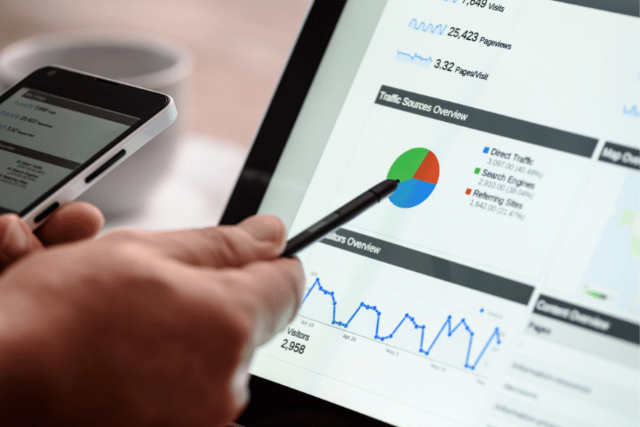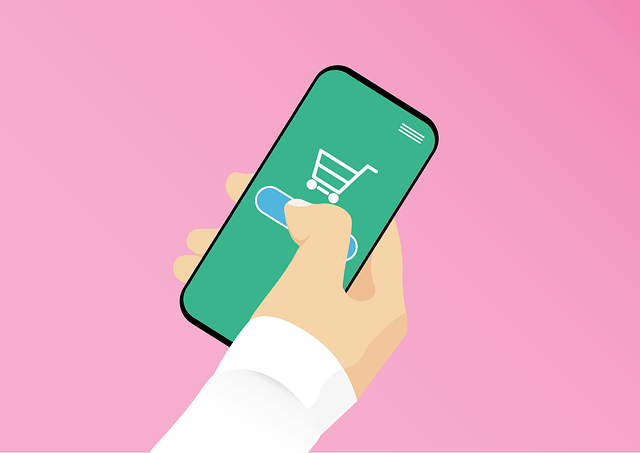Mastering the art of influencer marketing involves partnering with content creators who can authentically promote your brand while engaging their dedicated followers, ultimately driving measurable results for your business, i.e., online store.
Table of Contents
Introduction
In today’s digital era, influencer marketing has emerged as a powerful tool for online stores looking to expand their reach and increase sales.
This comprehensive guide will walk you through each step in creating an effective influencer marketing strategy, from finding the right influencers to crafting successful campaigns that resonate with your target audience.
Key Takeaways
- Influencer marketing can be a powerful tool for online stores to expand their reach and increase sales by collaborating with popular social media users to promote their brand.
- Different types of influencers are available, from mega-influencers to nano-influencers, each with unique benefits and drawbacks depending on your business goals and budget.
- Finding the right influencers involves identifying your target audience and niche, researching potential influencers’ authenticity metrics, and building strong relationships with them. Crafting a successful influencer marketing campaign requires setting clear goals and objectives, developing a strategy and budget, creating engaging content, and measuring success by tracking engagement rates, sales conversions, and overall ROI.
Understanding Influencer Marketing
Influencer marketing involves collaborating with popular social media users to promote your brand, which can significantly impact the online presence of an online store.
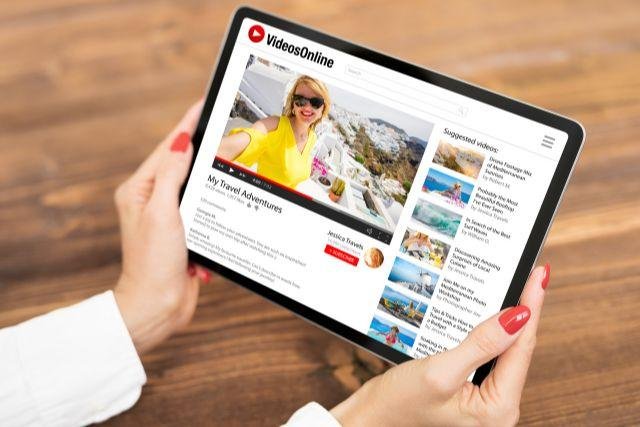
Definition And Explanation
Influencer marketing is a powerful digital advertising strategy where online sellers collaborate with influential individuals, known as influencers, to promote their products or services.
These influencers have a strong online presence and significant following on social media platforms such as Instagram, YouTube, TikTok, and Facebook.
By connecting with these influencers for promotional purposes, your online store can tap into an engaged audience that trusts the influencer’s opinions and recommendations.
For example, if you sell eco-friendly home goods, partnering with a popular green lifestyle influencer can significantly boost brand awareness among environmentally-conscious consumers who follow that individual.
Benefits Of Incorporating Influencer Marketing Into Your Online Store Strategy
Incorporating influencer marketing into your online store strategy has many benefits that can drive significant growth and increased revenue for your business. One of the main advantages is expanding your brand’s reach on social media platforms by leveraging the influencers’ large and engaged audiences.
Another benefit of influencer marketing is building a more authentic connection with your target audience through trusted and relatable individuals. Influencers have built trust within their communities, so recommending or endorsing a product carries a lot of weight with their followers.
Lastly, incorporating influencer marketing provides measurable results that allow you to track campaigns’ success by analyzing engagement rates, sales conversions, and overall ROI.
These insights help you determine which campaigns were successful and what changes need to be made in future campaigns to improve performance.
Overall, incorporating influencer marketing into your online store strategy can provide numerous benefits to increase brand awareness and engagement rates and ultimately drive sales growth for your business.”
Types Of Influencers And How They Can Help Your Brand
Influencers are not a one-size-fits-all solution. Understanding the different types of influencers and how they can assist your online store is essential. Here are some examples:
- Mega-Influencers: These are celebrities or public figures with millions of followers. They can increase brand awareness and drive sales, but their services come at a premium price.
- Macro-Influencers: With 100,000 to a million followers, these influencers offer higher engagement rates than mega-influencers and have specific niches.
- Micro-Influencers: With 10,000 to 100,000 followers, micro-influencers have a more engaged following due to their relatable content and smaller audience size. They are affordable options for small businesses.
- Nano-Influencers: With less than 10,000 supporters, nano-influencers have the highest engagement rate and often focus on local communities or niche markets.
Understanding the types of influencers available will help you choose the right partner for your online store’s goals and budget.
Finding The Right Influencers For Your Online Store
To find the right influencers for your online store, you must identify your target audience and niche, research potential influencers, analyze their metrics and authenticity, and build strong relationships with them.
Identifying Your Target Audience And Niche
Before diving into influencer marketing, it’s crucial to identify your target audience and niche. This step is essential to reach the right people with your influencer campaign.
To do this, take some time to research who your ideal customers are and what they like.
For example, if you own an online store that sells athletic wear for women, look for influencers in the fitness industry who cater specifically to women. These influencers could be fitness coaches or popular social media personalities who share workout tips and routines aimed at women.
Researching Potential Influencers
Finding the right influencer for your online store requires research and analysis. Identifying your target audience and niche is a crucial step in this process.
Start by looking at social media platforms where your target audience spends most of their time.
Analyzing an influencer’s authenticity before partnering with them is important. Look out for red flags such as fake followers or inauthentic content. Building strong relationships with influencers helps create genuine partnerships that benefit both parties.
Analyzing Influencer Metrics And Authenticity
To effectively leverage influencer marketing, it’s critical to analyze the metrics and authenticity of potential influencers. Metrics such as engagement rates, follower count, and demographics significantly determine which influencers are worth partnering with.
However, don’t rely solely on numbers – authenticity is equally important when selecting influencers.
For example, you may encounter an influencer with large following but low engagement rates because they purchased fake followers or used bots to increase likes and comments.
Such practices not only damage the credibility of the influencer but also affect the success of your campaign. On the other hand, an influencer with a smaller following but high engagement rates implies that they have built a loyal community interested in their content.
Once you identify potential influencers for partnerships, building strong relationships is crucial to establish trust between the parties involved.
Building Strong Relationships With Influencers
To ensure a successful influencer marketing campaign, building strong relationships with influencers is important. This involves regular communication and cultivating a mutually beneficial partnership.
Start by reaching out to potential influencers that align with your brand’s values and niche audience.
When working together on a campaign, be clear about deadlines and deliverables and give the influencer creative freedom. Remember that authenticity is key to keeping their posts effective.
Additionally, show appreciation for their work by compensating them fairly and promptly, whether through monetary compensation or offering free products or services they’ll love.
Crafting A Successful Influencer Marketing Campaign
Crafting a successful influencer marketing campaign involves setting clear goals and objectives, developing a strategy and budget, creating engaging and authentic content, and measuring the success of your campaign.
Setting Clear Goals And Objectives
Setting clear goals and objectives is critical when planning an influencer marketing campaign for your online store. This step ensures that you have a clear direction throughout the campaign, helping you remain focused and achieve measurable results.
For instance, a goal could be “to increase Instagram followers by 20% in three months” or “to generate 1000 clicks from an influencer partnership.” A well-defined target will help guide every decision made during the planning process.
When working with influencers, goals should be communicated clearly so they can tailor their content accordingly.
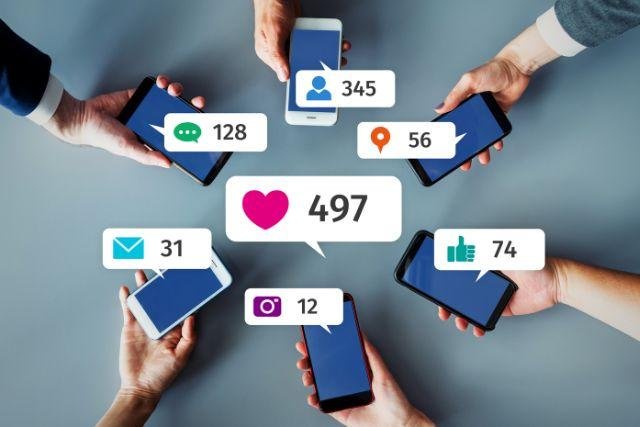
Developing A Strategy And Budget
Once you have identified your target audience and researched potential influencers, the next step is to develop a strategy and budget for your influencer marketing campaign.
First, set clear goals and objectives aligning with your business strategy. These could include increasing brand awareness, driving online sales, or improving audience engagement.
Next, determine how much you will spend on influencers based on their pricing and the size of their following.
When creating your content strategy, ensure it fits the influencer’s style and tone while staying true to your brand’s message.
Finally, ensure that you have KPIs in place to measure success effectively.
For example: “Developing an effective strategy and setting an appropriate budget can be key factors in a successful influencer marketing campaign for online stores seeking increased brand awareness or sales growth via social media promotion,” explains our expert author Jane Doe.
“Firstly, define specific goals aligned with company objectives before selecting authentic micro-influencers who resonate with target customers- these may offer better ROI versus high-priced well-known celebrities”.
Doe
Creating Engaging And Authentic Content
When it comes to influencer marketing, creating engaging and authentic content is key. This means ensuring that the content produced by the influencers you work with aligns with your brand objectives and resonates with your target audience.
One example of an effective influencer campaign incorporating great content was Sephora’s #Lipstories campaign in collaboration with various beauty influencers. The campaign featured 40 shades of lipsticks inspired by different life stories.
Influencers were tasked with creating unique looks featuring their favorite shade from the collection while sharing their stories on social media using the hashtag #Lipstories.
Focusing on relatable storytelling and showcasing beautiful makeup looks through real people’s lives instead of glossy ads or celebrities who feel like out-of-touch salespeople made this campaign a huge success story for Sephora.
By creating engaging and authentic content through influencer partnerships, online sellers have a higher chance of increasing brand awareness and building trust among consumers while increasing online presence and driving sales simultaneously – separate yourself away from competitor brands who only focus on traditional advertising strategies, which become ineffective as time goes by.
Measuring And Evaluating The Success Of Your Campaign
One of the critical factors in measuring and evaluating the success of your influencer marketing campaign is setting clear goals and objectives. It would be best if you determined what metrics you will use to measure the effectiveness of your campaign before getting started so that you can track progress, make adjustments as needed, and optimize for future campaigns.
It’s also essential to gather feedback from your influencers after each campaign. This will help you determine which elements worked well and which didn’t work so you can refine your strategy in the future.
Finally, regularly analyzing data from analytics tools such as Google Analytics or third-party social media monitoring tools helps provide an accurate analysis of influencers’ influence over their audiences and how they align with brand values.
Tools And Resources For Effective Influencer Marketing
In this section, we’ll dive into the various tools and resources available for implementing an effective influencer marketing campaign, including influencer marketing platforms and databases, social listening and monitoring tools, performance tracking, and analytics software, as well as legal and disclosure guidelines to ensure compliance with advertising regulations.
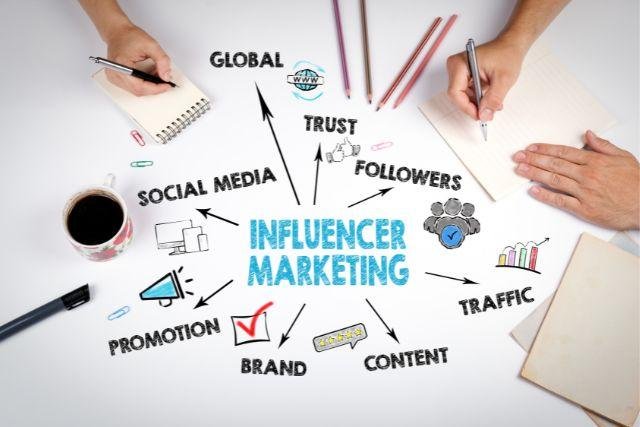
Influencer Marketing Platforms And Databases
There are several influencer marketing platforms and databases that you can use to connect with the right influencers for your online store. Here are some of the most popular ones:
- AspireIQ: This platform has a robust database of influencers and offers tools to help you manage your campaigns from start to finish.
- Influencer.co: This tool allows you to search for influencers based on niche, location, audience size, and engagement rate. It also helps you manage your campaigns and track your results.
- Upfluence: Upfluence provides access to more than 3 million influencers across various social media platforms. Its features include automated campaign management, analytics, and reporting tools.
- Fohr: Fohr boasts a community of more than 100,000 vetted influencers verified for their authenticity and reach. The platform also includes campaign tracking and analytics tools.
- TapInfluence: This platform has an extensive network of influencers who span multiple niches, including fashion, beauty, food, and travel. It offers end-to-end campaign management tools and has a dedicated account team that helps brands with their campaigns.
These influencer marketing platforms and databases can help you find the right influencers for your online store quickly and easily. They also offer helpful features such as campaign management tools, performance tracking metrics, audience insights, and legal compliance guidelines, among others, to ensure the smooth execution of influencer marketing strategies that drive results for your brand.
Social Listening And Monitoring Tools
To ensure the success of your influencer marketing campaign, it is crucial to use social listening and monitoring tools. These tools help you stay up-to-date with audience sentiment, track mentions of your brand, and measure the impact of your influencer marketing efforts. Here are some top social listening and monitoring tools to consider:
- Hootsuite: This platform offers tools for social media management, including listening and analytics features.
- Brandwatch: A comprehensive social listening tool that provides insights into brand awareness, reputation, and engagement.
- Mention: Allows you to monitor online conversations about your brand in real time so that you can respond promptly.
- Sprout Social: Provides social media management and monitoring tools, including mentions tracking and sentiment analysis.
- Keyhole: A hashtag analytics tool that helps track performance metrics for branded campaigns on Twitter and Instagram.
- Agorapulse is an all-in-one social media management platform with post-scheduling, reporting, and monitoring features.
By utilizing these tools with an effective influencer marketing strategy, online sellers can gain valuable insights into their target audience’s preferences while keeping their messaging on-brand and relevant.
Performance Tracking And Analytics
To ensure the success of your influencer marketing campaigns’ success, tracking and analyzing their performance is crucial. Here are some essential tips for effective performance tracking and analytics:
- Set Clear Goals: Identify your key performance indicators (KPIs) before launching any campaign, such as impressions, engagement rate, traffic, sales conversions, etc.
- Use Tracking Tools: Utilize analytics tools such as Google Analytics to measure website traffic and track conversions from social media platforms.
- Monitor Social Metrics: Track metrics such as follower growth, engagement rate, click-through rate (CTR), hashtag usage, and share of voice.
- Measure ROI: Calculate the return on investment (ROI) by comparing the campaign cost against the generated revenue or leads.
- Assess Post Quality: Evaluate the quality of influencer posts based on metrics like authenticity, relevance to your brand values, and audience preference.
- Optimize Campaigns: Analyze real-time data to adjust campaigns in response to insights gained, resulting in maximum impact and a better outcome.
By consistently assessing campaigns’ effectiveness through performance monitoring and analysis tools- brands can create data-driven influencer marketing strategies that deliver measurable results that can help grow their businesses online even further than ever imagined.
Legal And Disclosure Guidelines
It’s important to clearly understand legal and disclosure guidelines when it comes to influencer marketing. The Federal Trade Commission (FTC) mandates that all sponsored content must be disclosed by influencers, meaning they must inform their audience if the post or content is financially compensated.
Failure to disclose can result in fines and damage to the influencer’s and the brand’s reputation.
It’s essential for online sellers partnering with influencers to ensure that their campaigns follow these guidelines, protecting both parties legally and ethically. Brands should provide clear guidelines for disclosures and include them in contracts with influencers.
Future Of Influencer Marketing In E-Commerce And Conclusion
The future of influencer marketing in e-commerce is promising, with industry experts predicting continued growth and evolution. By following the comprehensive guide on leveraging influencer marketing for your online store, you’ll be well-prepared to navigate these changes and maximize your success.
Trends And Predictions For The Industry
Influencer marketing has become a powerful strategy to build brand awareness and drive sales for online stores. The industry is continuously evolving, with new trends emerging every year.
One such trend is the rise of nano-influencers, individuals with a smaller but highly engaged following in their niche.
Another significant trend is the use of video content in influencer marketing campaigns. Video content generates higher engagement rates than still images or text-based posts, making it an excellent option for brands looking to increase audience engagement.
Furthermore, there’s an increasing emphasis on authenticity and transparency in influencer marketing. Brands opt for more authentic collaborations that align with their values while being transparent about paid partnerships with influencers.
As the industry continues its growth trajectory globally due to ongoing technological advancements and changes in consumer behavior patterns caused by pandemics like COVID-19 across different markets worldwide, It becomes essential for businesses operating online stores to stay up-to-date on these trends to adapt their strategies accordingly.
Applying Lessons Learned And Next Steps For Your Business.
As with any marketing strategy, it’s important to analyze the success of your influencer campaigns and learn from them. Take note of what worked well and didn’t, and use that information to improve future campaigns.
One next step for your business could be exploring affiliate marketing through influencers. This involves paying influencers a commission for every sale through their unique referral link or discount code.
Building trust and authenticity is key in influencer marketing – don’t sacrifice these values for quick wins or short-term gains.
Frequently Asked Questions
1. What is influencer marketing, and how does it work for online stores?
Influencer marketing is a strategy where businesses partner with popular individuals or ‘influencers’ on social media platforms to promote their products or services. This strategy can be a powerful marketing tool that helps boost sales and increase brand awareness.
2. How can Influencer Marketing benefit my E-commerce Business?
Influencer marketing can have numerous benefits for your e-commerce business. It can:
- Increase brand awareness: Influencers often have large, engaged audiences. When they promote your product, it exposes your brand to potential customers who may not have heard about your business otherwise.
- Boost sales: Effective influencer marketing campaigns often increase sales, as influencers can persuade their followers to try out your products.
- Improve your online presence: Working with influencers can enhance your brand’s visibility online, particularly on social media platforms.
3. How do I find the Right Influencer for my E-commerce Brand?
Finding the right influencer for your e-commerce brand involves researching and identifying influencers who align with your brand values, have a following representing your target audience, and have a good engagement rate. You can use various online tools or reach out to a marketing agency specializing in influencer marketing to help find the ideal influencer for your brand.
4. What are the different Types of Influencers?
Influencers can be categorized based on their follower count and niche. Some common types include:
- Nano influencers: These influencers have a relatively small follower count but often have a high engagement rate. They can be ideal for small businesses looking for cost-effective marketing strategies.
- Micro-influencers: They have more followers than nano-influencers and often focus on a specific niche.
- Macro-influencers: These are professional influencers with a large follower base. They usually have a broad reach but can be more expensive to collaborate with.
- Mega influencers: These influencers are often celebrities with millions of followers. They have a massive reach, but their services are usually expensive.
5. What are some Effective Influencer Marketing Strategies for E-commerce?
Here are a few tips for a successful influencer campaign:
- Find Relevant Influencers: Your chosen influencer should be relevant to your brand and product.
- Authenticity: Influencers who like your product or service will create more authentic and convincing content.
- Creative Freedom: Give the influencer creative freedom while creating content around your product. They know their audience best.
- Clear Goals: Have clear marketing goals in mind and communicate these with your influencer.
- Track Results: Use tracking codes and analytics to measure the campaign’s effectiveness.
6. Can influencer marketing boost my E-commerce sales?
Yes, influencer marketing can boost e-commerce sales significantly. Influencers sharing engaging content about your product or service influence their followers’ buying decisions and can drive more traffic to your e-commerce store. This, in turn, can lead to higher sales and improved brand awareness.
7. How do I find the right influencers for my online store?
Finding the right influencers takes research and analysis. Start by identifying your target audience and researching the social media platforms they use most frequently. Then look for influencers within those platforms with followers matching your ideal customer demographics.
8. How can I effectively collaborate with influencers for my online store?
Effective collaboration with influencers involves clear communication, setting expectations early on in the partnership, offering fair compensation or incentives, respecting their creative input, and monitoring campaign performance metrics to assess success.
9. Can small businesses benefit from influencer marketing too?
Yes! Influencer marketing is not just reserved for big brands with deep pockets; smaller businesses can also utilize this strategy by seeking out micro-influencers (influencers with smaller but highly engaged followings) who are likely more affordable than macro-influencers or celebrities while still influencing niche audiences relevant to their product/service offerings.

